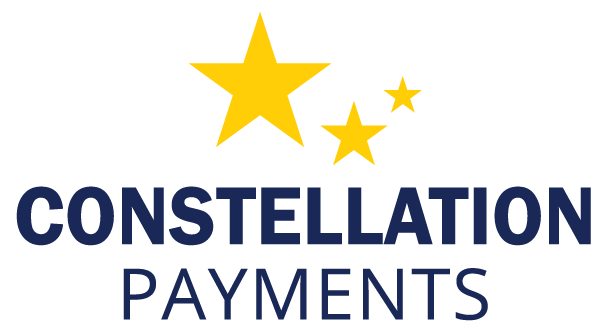The winds of change are working their magic across the consumer and corporate marketplaces. The digital economy is growing exponentially, and with it, the popularity of the subscription-based business model.
As companies and the industries they function in mature, the adoption of innovations in pricing and packaging become increasingly necessary. With it, comes the opportunity to build value in customer relationships. Without it, one’s company risks being lost in an increasingly-crowded marketplace.
This “Subscription Revolution” and the increased interest in cloud billing is driving a new wave of business agility. There’s been a change in the way products and services are sold: away from the traditional one-off product sales approach, and towards a more versatile pricing system based on subscriptions and usage.
Research shows that one-off pricing models — as in one transaction followed by a hope for a returning customer — are still in wide use, but its popularity is dropping.
Conversely, new billing models centered around an ongoing customer relationship are on the rise. Subscriptions, pay per use and freemium models are becoming ubiquitous.
Simple but Not Simplistic
Subscriptions can be an appealing option to many companies, because they are simple to understand. If you’re growing a business, a subscription-only option is a great way to get a leg up in the market and begin developing a unique niche.
Subscriptions have limitations that should be considered in advance. Exponential growth sounds great until you can’t keep up with fulfillment and customer satisfaction, and with it, subscriber numbers begin to drop. Setting benchmarks in advance that trigger expansions in infrastructure are highly advisable.
Markets Can and Will Demand Changes in Pricing and Deliverables
It’s wise to make a plan for other models that offer some of the benefits of subscriptions, yet allow flexibility for the consumer. Usage-based billing might be one of those options.
Technology brings about inevitable changes in consumers and markets. Digital music started with one-off purchasing, then freemium models supported by advertising like Pandora provided an improvement. Eventually a subscription-based approach, like that offered by Spotify and Beats, have made significant changes to the market. There’s really no turning back for digital music. For the same reason record stores are becoming dinosaurs, so too will single purchases of digital songs.
In-house Developed Billing Systems Are on the Decline
While there are still many companies (even large ones) that still have manual processes for billing, the number is decreasing daily. So too are the numbers of companies developing their own in-house billing systems. The reasons are pretty compelling. Economies of scale and the increase in regulatory exposure make outsourcing to experts a wise choice for many companies.
In-house IT teams may have the acumen to program the very basics of transaction processing, but because they are not specialists in financial transactions, they inevitably build systems that lack the necessary agility and/or sophistication needed to handle the ever-changing needs that will come as subscription numbers increase … things like dunning management, PCI compliance and subscriber churn. With a cloud-based partner on your side, you can make responsive adjustments, and remain instantly competitive, rather than miss a key window of opportunity because your IT resources couldn’t get things done quickly enough.
Enterprise Companies See Significant Cost Savings via Cloud-Based Billing
Self-administrated billing loses its effectiveness as businesses scale. Large companies with say 1000+ employees will find significantly-reduced costs of program management through outsourcing billing for one-off and subscription sales.
Key Factors in Choosing a Subscription Billing Platform
With subscription billing’s increase in popularity, comes a slew of companies looking to get your business. The choosing of a platform, and the company that supports it, is crucial to achieving success and mitigating risks. Finding companies with a proven expertise in billing and a long track record of consistent delivery is key.
After your subscription program goes live, unforeseen challenges can and will happen, so finding a company with a great customer service reputation is also key.
Lastly, choosing a company that has significant experience with recurring billing transactions is also a huge advantage. The payment processing industry is just like most others. There are big players that attempt to cover all areas, and then there are agile niche specialists.
The Best of Both Worlds
So on one hand, you’d like a company with vast experience in payment processing, but on the other, you’d like a company that has a specialty in recurring payment processing, and the special nature of ongoing support needed to succeed.
Member Solutions has been working with membership-based businesses for over 24 years. Based on that expertise, we recognized a need for a payment gateway designed from the ground up to service companies with recurring transactions. It was for this reason that Constellation Payments was born.
To learn more about Constellation Payments, visit csipay.com or Call 888.248.7060.
Rick Ellis is a Business Development Executive with over 20 years of experience operating a membership-based company. Rick has experienced firsthand the types of unique challenges present when using a recurring billing business model. Rick enjoys working through complex business models to find and leverage every opportunity to optimize profit and reduce risk.
Photo Credit: Pixabay.com
FREE Report
7 Key Mistakes to Avoid When Offering Recurring Billing to Your Clients
Are you making billing mistakes that are hurting your business? Download this FREE report for quick tips on retaining your ongoing client relationships and increasing recurring revenue.

